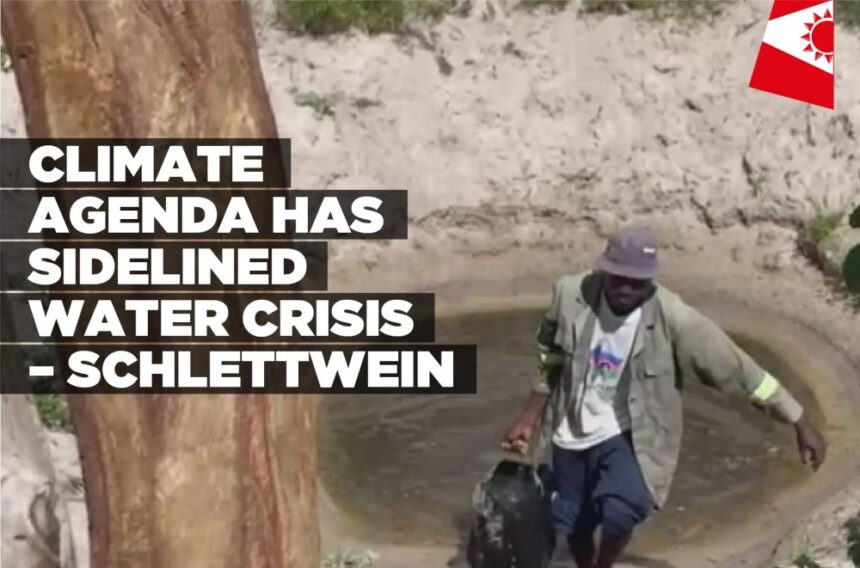Staff Reporter
THE Minister of Agriculture, Water, and Land Reform, Calle Schlettwein, has said that currently, the Climate Crisis Agenda is dominated by efforts to mitigate and adapt to CO2 emissions and achieve carbon-neutral industrialization. He added that this agenda falls short of recognizing the fact that no development is possible without water, and the water crisis is not receiving the required attention.
Schlettwein made these remarks at the Africa Climate Summit themed “Accelerating climate-resilient investments in water,” held in Kenya. Schlettwein said that the theme of the Africa Climate Summit can only be properly considered when one recognizes that the world is facing a three-faceted global crisis.
“First, we face the climate change crisis. The effects are now clearly visible with increased intensity in droughts and floods, out-of-season storms, intense wildfires, flooding, unprecedented heat waves, glacier melting, and rising ocean levels. In fact, the world is in a water crisis as all these climatic changes are having severe effects on the water cycle, which can be described as the ‘lifeblood of the planet.’ Moreover, it makes securing a water supply more difficult, more expensive, and often out of reach for developing countries,” Schlettwein explained.
He added that the freshwater cycle (green water) is in crisis with ripple effects on food security, health, sanitation, and overall development, placing them in jeopardy. Schlettwein shared that it also threatens biodiversity and conservation since no life is possible without water. “The architecture of the climate change agenda, therefore, must be corrected to include water as an equally crucial aspect in the Climate Change Agenda, which must include the financing of the water sector,” Schlettwein said.
Further to this, the minister said that the current international financial architecture shows its age and is no longer able to deal with a globalized world. “Currently, the debt crisis, exchange trends, and the weaponizing of financial rules are fueling inequality and making the future prospects for developing economies difficult. Africa is a case in point, with the debt crisis pushing many African economies into defaults. Africa is again the hardest hit by inflationary pressures, with food and fuel prices climbing beyond affordability thresholds for large sections of the population. This is especially relevant for Africa with its youthful population where a conducive economic climate for quality economic growth and job creation is much needed to ensure prosperity for our children,” Schlettwein said.
He further stressed that shortfalls in the required funding to address climate change and related water cycle aspects remain significant. “The proposal to step up domestic financial resources is pivotal, but by no means the silver bullet solving everything. We are facing a global water crisis that requires global solutions, specifically the financial needs for the water agenda,” the Agriculture minister said.



Leave a Reply